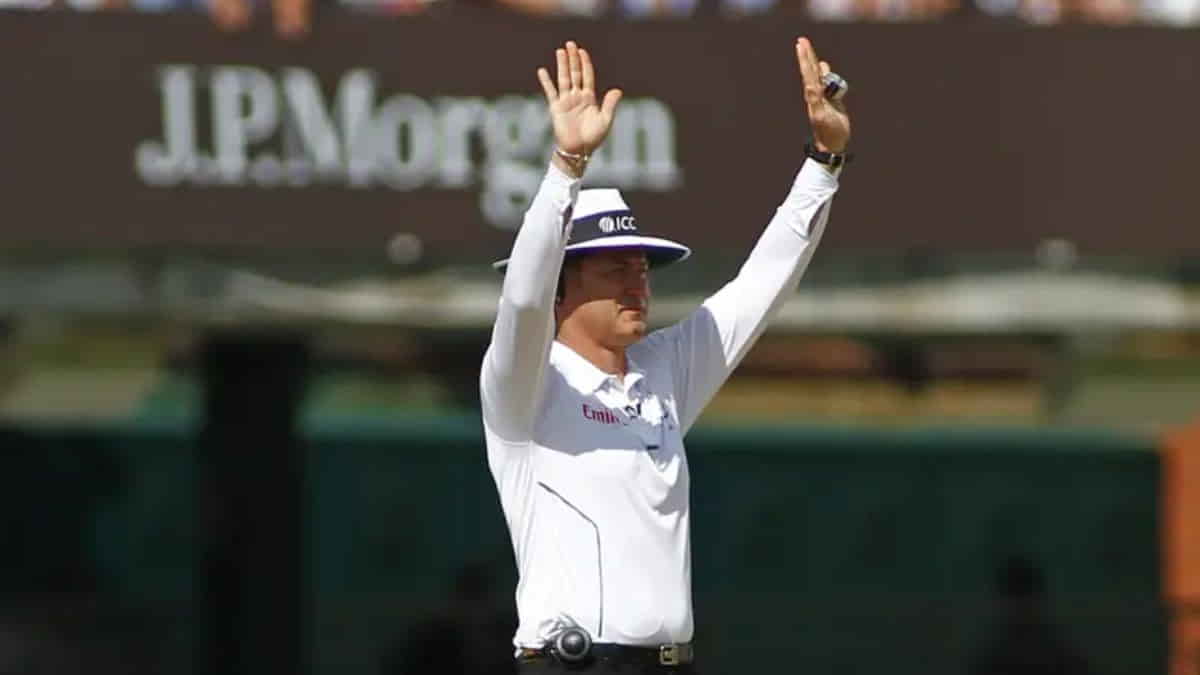
A Cricket Umpire is one of the most important roles that a person may play in a cricket match. But, in order to become a Cricket Umpire in India, you must first register with your respective State Cricket Associations and pass a written and oral examination. Before sitting for the BCCI Level 1 and Level 2 exams, you must first officiate in local cricket matches.
But what skills are needed? Is it required to have played cricket before becoming a cricket umpire? We’ll answer all of these questions below:
Minimum Qualification & Requirements For Umpire
According to BCCI regulations, there is no minimum educational need to become an umpire. A person who can read and write and is familiar with the rules and various cricketing terminologies is eligible to umpire a cricket match.
Umpires for international matches must be fluent in English.
To become an umpire, you must be completely familiar with all 42 statutes. Umpires in India must also pass written tests administered by state sports administrations (MCA, DCA, etc.).
After players pass this state test, they are only entitled to take the BCCI Level 1 & 2 examinations.
In addition, to become an umpire, you must be in good physical and mental health. An umpire’s job requires standing on the field for long hours.
Skills Needed To Become A Cricket Umpire
Your duty as an umpire is to make right and unbiased judgements, handle people and circumstances, and multitask. The umpire’s decisions determine the outcome of a match.
As a result, even under high-pressure situations, an umpire must make proper and justifiable judgements. One bad call by the umpire might cost either team a lot of money.
An umpire must do a variety of jobs while on the field, including evaluating wide balls and no balls, keeping track of deliveries, monitoring field placement, field obstruction, run-outs, and much more.
This necessitates an umpire’s ability to manage several jobs and responsibilities at the same time.
Process Of Becoming A Cricket Umpire
An umpire must go through several steps before he or she can officiate an international match, whether it be due to physical requirements or cricketing knowledge. Here’s a breakdown of the entire process of becoming an Indian cricket umpire:
1. Register with State Cricket Association
The first step is to register with your state cricket organisation and take the umpire test. Afterwards, you must pass the state-level umpire exam, which is administered by local authorities.
2. Officiate in Local Matches
Once qualified by state governing organisations, you can serve as an umpire in state council matches. It will add valuable experience to your resume.
3. BCCI Level 1 Examination
Individuals who have passed the state-level umpire test can apply for the BCCI Level 1 umpire exam. To take this examination, you must first pass the BCCI’s internal screening process.
4. BCCI Level 2 Examination
Only applicants who passed the Level 1 test are eligible to take the BCCI Level 2 umpire exam. Level 1 and 2 exams are divided into three rounds: practical, oral, and written.
After successfully completing these four phases, you will be included to the BCCI’s umpires panel. Your training will begin within a few weeks of the BCCI Level 2 exam results being announced.
How Much Do Cricket Umpires Get Paid?
The pay paid to umpires varies depending on the format and quality of the cricket match. Umpires who preside in local cricket matches are paid somewhere between $1,000 and $2,000 each match.
If an umpire is simply registered with a state authority, he is deemed unpanelled and gets paid Rs. 10,000 to Rs. 15.000 every match.
All three formats of cricket pay more for BCCI-paneled and elite-class umpires. The match fee for a BCCI-registered umpire is between Rs. 50,000 and Rs. 100,000.
Age Limits For Becoming A Cricket Umpire
A person must be at least 18 years old to become an umpire at the state council. The maximum age for the BCCI Level 1 and Level 2 exams is 40 and 45 years old, respectively.
Umpires are given enough of time to study for and take the BCCI umpire examination. BCCI umpires can retire at any age between 55 and 60, depending on their experience.
Also Read: Do You Know How Much The Umpire Gets Paid Per Match? (cricfiles.com)
“Get more breaking news, cricket updates, fixtures and trending news only on cricfiles.com. Follow us on Facebook or Twitter and Subscribe to our YouTube Channel today.”





